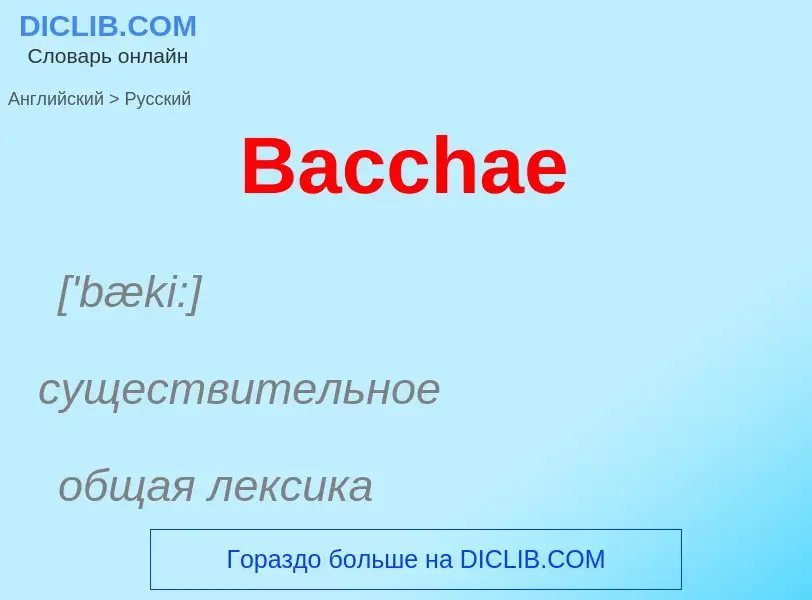Translation and analysis of words by ChatGPT artificial intelligence
On this page you can get a detailed analysis of a word or phrase, produced by the best artificial intelligence technology to date:
- how the word is used
- frequency of use
- it is used more often in oral or written speech
- word translation options
- usage examples (several phrases with translation)
- etymology
Bacchae - translation to russian
['bæki:]
существительное
общая лексика
вакханки
Wikipedia

The Bacchae (; Greek: Βάκχαι, Bakkhai; also known as The Bacchantes ) is an ancient Greek tragedy, written by the Athenian playwright Euripides during his final years in Macedonia, at the court of Archelaus I of Macedon. It premiered posthumously at the Theatre of Dionysus in 405 BC as part of a tetralogy that also included Iphigeneia at Aulis and Alcmaeon in Corinth, and which Euripides' son or nephew is assumed to have directed. It won first prize in the City Dionysia festival competition.
The tragedy is based on the Greek myth of King Pentheus of Thebes and his mother Agave, and their punishment by the god Dionysus (who is Pentheus's cousin). The god Dionysus appears at the beginning of the play and proclaims that he has arrived in Thebes to avenge the slander, which has been repeated by his aunts, that he is not the son of Zeus. In response, he intends to introduce Dionysian rites into the city, and he intends to demonstrate to the king, Pentheus, and to Thebes that he was indeed born a god. At the end of the play, Pentheus is torn apart by the women of Thebes and his mother Agave bears his head on a pike to her father Cadmus.
The Bacchae is considered to be not only one of Euripides's greatest tragedies, but also one of the greatest ever written, modern or ancient. The Bacchae is distinctive in that the chorus is integrated into the plot and the god is not a distant presence but a character in the play, indeed, the protagonist.


.jpg?width=200)


![Ramona Reeves and Lynn Odell in director Brad Mays' stage production of [[Euripides]]' ''The Bacchae,'' 1997, Los Angeles Ramona Reeves and Lynn Odell in director Brad Mays' stage production of [[Euripides]]' ''The Bacchae,'' 1997, Los Angeles](https://commons.wikimedia.org/wiki/Special:FilePath/Thebacchae1997.jpg?width=200)
